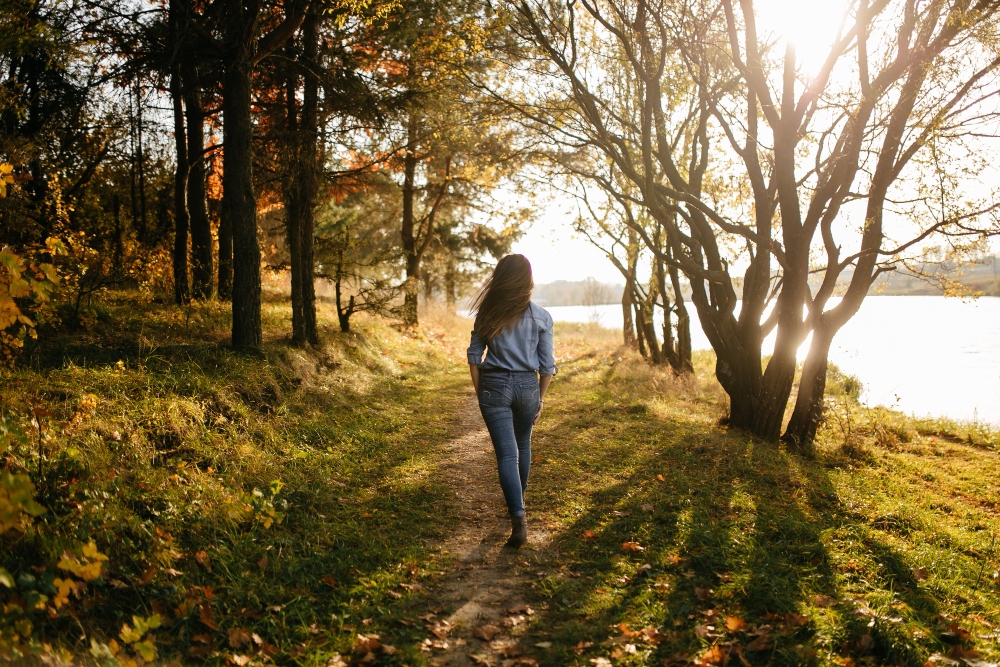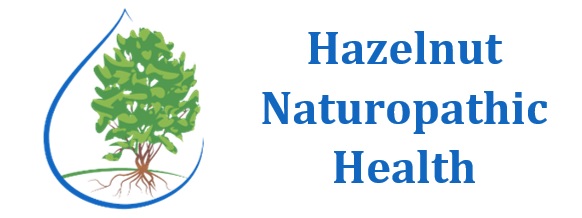
Nature’s Remedy Just Beyond Your Front Door
Nature's Remedy Just Beyond Your Front Door
Feeling sluggish? Unmotivated? Stressed? Depressed or anxious? Before you reach for medication, consider trying nature's remedy just beyond your front door. Compelling scientific evidence shows the less time children and adults spend in nature, the greater the detriment to our well-being. Here's a closer look at "nature-deficit disorder" and the health benefits of being out in the natural world.
Lack of Time in Nature is Killing Us Slowly
Evidence suggests that a lack of nature contributes to the following health issues:
- Increased stress
- Trouble maintaining focus/attention
- Diminished emotional expression and resilience
- Deficits in creative thinking and reasoning
- Reduced capacity for forming healthy social relationships
- Increased risk / worsening of chronic illness
- Loss of connectedness to the natural world and one's responsibility for it
Even though nature-deficit disorder is not yet regarded as a medical condition, both conventional and holistic health practitioners recognize the detrimental effects from lack of contact with nature as significant. These practitioners view nature-deficit as a nonclinical syndrome that can impair the emotional, cognitive, and physical functioning of adults and children.
Health Benefits Provided by Mother Nature
Spending time in nature has tremendous health benefits and can reverse the effects of nature-deficiency by stimulating underused neuro-sensory pathways (the pathways to and from the sense organs and the brain/mind). Additionally, pathways that have been over-stimulated by use of technology are revitalized; we experience a refreshing change to our disconnected psyches, shifting from "urban-zombie" to being ecologically aware and re-connected to the natural world.
Even as our lives have changed during the COVID-19 pandemic, experts have urged us to get outside in wide open spaces. This was not only for social distancing purposes. If you are still mostly indoors, experience the benefit of letting nature into your living space: Open windows to bring in fresh air. Sit near a window and meditate on the natural elements within your view. Grow potted plants indoors. Do whatever you can to enhance your well-being by immersing yourself in natural environments. Some benefits can be noticed immediately while others happen over time:
- Reduced stress symptoms, blood pressure and heart rate
- Improved cognitive functioning (focus, attention, problem solving)
- Enhanced self-awareness and feelings of peace, relaxation
- Reduced anxiety, depression, and cognitive dissonance
- Enhanced self-esteem, personal and social relationships
- Reduction in delinquent behavior among teens
- Expansion of one's sense of time, which can reduce stress and worry
These findings come from studies that have looked at the effects of nature experiences such as wilderness therapy excursions, recreational hiking and camping, or simply spending time sitting in a park or garden.
Get Your Daily Dose of Nature
Nature's remedy is literally just beyond your front door. Whether for 15 minutes or a few hours, here are a few ideas to help you experience the health benefits of nature:
Forest Bathing. It's not a bath in a river. It's not a hike with a destined path to follow. Forest bathing or shinrin-yoku, is a tradition that emerged in Japan during the 1980s. It's a meditative immersion in the natural world where you slow down and intentionally turn your attention to the smells, textures, tastes, and sights of the forest.
Observe the Night Sky. Before going to bed in the evening, stand outside (away from artificial light) and gaze at the night sky. Shift your focal awareness to a single star, then to a cluster, then to the galaxy above you.
Take a Stroll. This is not a goal-oriented, step-counting walk. Just a stroll. If you can go for 20 or 30 minutes, great! If not, even 5 minutes is better than not going at all. As you walk, just breathe and observe. Let any worries slip away with each outgoing breath.
Sit Outside. When was the last time you saw your own backyard or front porch? Or the park a few blocks away from home or the office? Get there--without the phone--and just be present. Just observe.
Grow a Garden. If you don't have the space at your own home, consider a community supported garden plot or volunteer to work at a local farm (sometimes in exchange for products they grow). Get your hands in the dirt, breathe in the smell of the earth, and release your worries.
Whether you go paddleboarding, draw, color or paint outside, take a plein-aire art class, join a nature conservancy group and help clean the trails, take an agility class with your pet, or go to the beach or lake/pond, the point is to get outside and get your dose of nature. Cure your own nature deficiency. If you find nature's remedy is not enough to help you meet your health goals, consider naturopathic medicine as a more natural option.
Resources
- Warber, Sara L et al. "Addressing "Nature-Deficit Disorder: A Mixed Methods Pilot Study of Young Adults Attending a Wilderness Camp." Evidence-based complementary and alternative medicine: eCAM vol. 2015 (2015): 651827. doi:10.1155/2015/651827. https://www.ncbi.nlm.nih.gov/pmc/articles/PMC4695668/
- Li, Q., Otsuka, T., Kobayashi, M., Wakayama, Y., Inagaki, H., Katsumata, M., Hirata, Y., Li, Y., Hirata, K., Shimizu, T., Suzuki, H., Kawada, T., & Kagawa, T. (2011). Acute effects of walking in forest environments on cardiovascular and metabolic parameters. European journal of applied physiology, 111(11), 2845–2853. https://doi.org/10.1007/s00421-011-1918-z
- Louv, R. (2005) Last Child in the Woods: Saving Our Children from Nature-Deficit Disorder. Chapel Hill, NC, USA: Algonquin Books of Chapel Hill.
- Kaplan, S. "The restorative benefits of nature: toward an integrative framework." Journal of Environmental Psychology. 1995; 15(3):169–182. doi: 10.1016/0272-4944(95)90001-2.
- Capaldi, C. A., Dopko, R. L., Zelenski J. M. "The relationship between nature connectedness and happiness: a meta-analysis." Frontiers in Psychology. 2014; 5, article 976 doi: 10.3389/fpsyg.2014.00976. [PMC free article] [PubMed]
- Kaplan, R., Kaplan, S. (1989) The Experience of Nature: A Psychological Perspective. Cambridge, UK: Cambridge University Press; Republished by Ulrich's, Ann Arbor, Mich, USA, 1995.
- Marselle, M. R., Irvine, K. N., Warber, S. L. "Examining group walks in nature and multiple aspects of well-being: a large-scale study." Ecopsychology. 2014;6(3):134–147. doi: 10.1089/eco.2014.0027.
- Haluza, D., Schönbauer, R., Cervinka, R. "Green perspectives for public health: a narrative review on the physiological effects of experiencing outdoor nature." International Journal of Environmental Research and Public Health. 2014;11(5):5445–5461. doi: 10.3390/ijerph110505445. https://www.ncbi.nlm.nih.gov/pmc/articles/PMC4053896/
- Wells N. M. "At home with nature: effects of 'greenness' on children's cognitive functioning." Environment and Behavior. 2000; 32(6):775–795. doi: 10.1177/00139160021972793. https://www.fs.usda.gov/treesearch/pubs/14883
- Mayer, F. S., Frantz, C. M., Bruehlman-Senecal E., Dolliver K. "Why is nature beneficial?: the role of connectedness to nature." Environment and Behavior. 2009; 41(5):607–643. doi: 10.1177/0013916508319745. https://www.researchgate.net/publication/238428905_Why_Is_Nature_BeneficialThe_Role_of_Connectedness_to_Nature
- Irvine, K. N., Warber, S. L. "Greening healthcare: practicing as if the natural environment really mattered." Alternative Therapies in Health and Medicine. 2002; 8(5):76–83 https://www.researchgate.net/publication/11156361_Greening_Healthcare_Practicing_as_if_the_natural_environment_really_mattered
- "How Wilderness Therapy Works: An Examination of the Wilderness Therapy Process to Treat Adolescents with Behavioral Problems and Addictions." USDA Forest Service, 2000 https://www.fs.usda.gov/treesearch/pubs/21990
- Barton, J., and J. Pretty. "What Is the Best Dose of Nature and Green Exercise for Improving Mental Health? A Multi-Study Analysis." Abstract. Environmental Science & Technology 44, no. 10 (May 15, 2010): 3947-3955. http://pubs.acs.org/doi/abs/10.1021/es903183r
- Children and Nature Network: https://research.childrenandnature.org/research-library/
- National Environmental Education Foundation: https://www.neefusa.org
- Project Nature Connect http://www.ecopsych.com/overview.html
- Natural Attraction Ecology video: http://www.youtube.com/watch?v=ddRigePS2MY
- Ecological Psychology Explained: https://www.viridis.edu/What-Is-Ecopsychology
Image Credit: bristekjegor/freepik.com

Leave a Comment
(0 Comments)